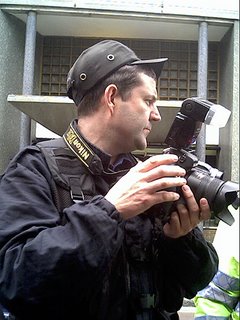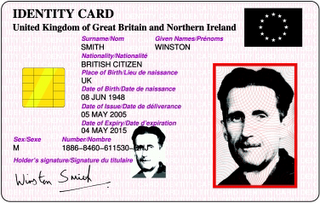The Other Israel
 Whenever Israel is mentioned in the West, it's almost always with reference to the Israel-Palestine conflict. In many respects this isn't surprising. Israel's brutal policy in the occupied territories and its vicious assault on Lebanon earlier this year are major crimes worthy of condemnation. Nevertheless, this focus can obscure the complex dynamics of Israeli society which seems to be becoming increasingly class-riven.
Whenever Israel is mentioned in the West, it's almost always with reference to the Israel-Palestine conflict. In many respects this isn't surprising. Israel's brutal policy in the occupied territories and its vicious assault on Lebanon earlier this year are major crimes worthy of condemnation. Nevertheless, this focus can obscure the complex dynamics of Israeli society which seems to be becoming increasingly class-riven.A recent statement by the Bank of Israel on the country's economic development hints at this reality: "The moderate rise in real wages characterizes the past three years, as does the rapid growth in the economy, coming after two years of considerable erosion of real wages." What this means in plain English, Roy Wagner notes is that "[t]he economy is growing fast, but wages are rising very, very slowly." Furthermore, the report reveals that despite a small rise in the minimum wage, salaries are increasing so slowly that the economy is witnessing "a faster rise in output per hour of labor than the rise in costs per hour of labor." The Marxists amongst you may well describe this as the bourgeoisie extracting more surplus value, but the rest of us ought to be content with Wagner's translation: "The gap between what workers produce and the money they make is growing steadily."
But how exactly did this situation come about?:
The Bank of Israel dismisses this development by referring to transition between industries and the recruitment of young, entry-level, low wage earners. I believe this analysis is glossing over a much more troublesome reality.What Wagner seems to be describing here, is what has come to be known in trendy activist circles as "precarity". This refers to the flexibile, temporary, contingent, casual and intermittent method of working which play an increasingly central role in the post-industrial economy and is by no means a uniquely Israeli problem.
The recent worker struggle at Ben-Gurion Airport should have been a genuine eye-opener for those who insist, like Bank of Israel analysts, on keeping their heads in the clouds. At Ben-Gurion workers are regularly dismissed so that other workers can be hired in their place. This practice prevents workers from reaching tenure and accumulating various rights under collective bargaining agreements. Since the workers keep getting fired and rehired, they are destined to remain entry-level workers for as long as they are employed.
The situation is not hopeless, however. Workers are organising inspite of these difficulties and fighting back. Wagner points out that the struggle waged by workers at the airport did achieve at least some of its goals. "The number of workers slated for dismissal was reduced, and no more workers will be dismissed until the collective bargaining agreement expires in December 2007." Furthermore, yesterday witnessed a general strike across Israel, much to the chagrin of Israeli bosses. The strike was expected to impact government offices, airports and seaports, railways, local authorities and rubbish collection as well as utilities and even emergency services. The strike, called by the Histadrut labour federation, is an attempt to put pressure on 81 local authorities and 13 religious councils who the union allege have failed to pay employees or transfer money to pension funds for several months. They believe that this has impacted more than 40,000 workers and estimate that the relevant bodies owe NIS 1 billion.
At the time of writing, this struggle appears to have received minimal attention in the UK, perhaps because it doesn't sit comfortably within the prevailing paradigm for understanding what is going on in the Middle East. This paradigm, as common on the left as anywhere else, tends to emphasise the centrality of the Israeli-Palestinian struggle to the exclusion of any other concerns and internal divsions. While this makes things much simpler, its questionable, whether it forms a reliable foundation on which to base political action.


























